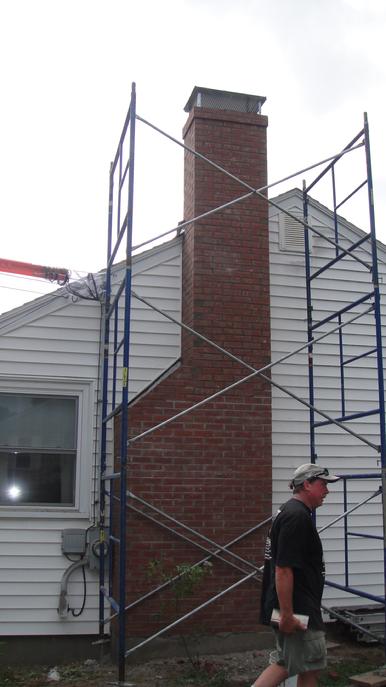Chimney sweeps now face competition for business, and the job is different, too.
BERLIN – Walking down a cobbled Berlin street clad in the black brass-buttoned jacket and top hat typical of German chimney sweeps, Timo Stahl is mobbed by people wanting to shake his hand.
"It happens all the time – chimney sweeps are said to bring luck," says Stahl, extending his hand and chatting jovially with a mother and her child.
But that luck is not rubbing off on the sweeps of Deutschland.
On Jan. 1, following years of pressure from the European Union, the German government broke up the chimney sweep monopoly that has existed here since the Middle Ages. The edict brushed aside a system rooted in the professional guilds formed in Europe centuries ago.
Until now, the 8,000 or so master chimney sweeps had exclusive work districts that no other German sweep could compete against, forcing every homeowner in the district to go the sanctioned sweep.
The new year change brings Germany in line with EU competition policy that calls on all member nations to break down monopolies in the trades. Sweeps must compete with others for business, including foreigners from neighboring EU countries.
The market is not the only thing that has changed about the job. For much sweep history, the men in black finished work every evening covered in soot after a long day of scrubbing chimneys with bristled brushes.
While cleaning chimneys is still part of the sweep's tasks, the switch to gas and oil-based central heating over the past 30 years or so has meant that the well-dressed men and women of this trade also inspect heating systems for energy efficiency, fire safety and carbon monoxide leaks.
Norbert Skrobek, 52, started his apprenticeship as a chimney sweep in Berlin more than 35 years ago.
"I found the idea so romantic," he said. "Just to be the man dressed in black on the roof. I had a thirst for adventure."
Skrobek operates a chimney sweep business with his wife and son out of a shop in Berlin's busy Kreuzberg neighborhood. He has employees who also hoped to get a district of their own to sweep, but Skrobek says he can no longer tell his trainees that they have a secure future.
"Earlier you could say, 'Do your master tradesman certificate and you will have your own area later' – you had future prospects," he said. "You no longer have that as a chimney sweep."
Under the new laws, property owners will be able to turn to qualified contractors to carry out the sweep services for a negotiated price.
The People's Lobby Against the Chimney Sweep Monopoly, which has been fighting to break up the German chimney sweep monopoly for years, says that much of the sweeps work is obsolete and that some sweeps weren't doing their jobs. The lobby says freelance chimney sweeps will be 30% cheaper.
Skrobek thinks prices may drop initially but that many firms will be forced to close or consolidate, driving prices up again. Contractors will have to travel greater distances and advertise for business, raising costs and thus prices.
It was not as if sweeps could charge what they wanted. Rates set by the government mandated that a basic sweep of a chimney cost $33, a low charge that the sweeps say may be why few foreigners arrived to challenge Germans for the work when Germany opened up the industry to outsiders in 2009.
While the chimney sweep industry did need to be updated, Skrobek says, a move to free markets wasn't necessary.
"The professional know-how is often lacking because the EU orders something and we Germans always try to be 110% correct and this over-exaggerated need to be correct leads us to regulate things we don't need to regulate," he said.
Customers will now have the advantage of being able to choose their own chimney sweep, forcing firms to improve customer service. Some sweeps thinks this is a positive thing but warn that in the drive for competition, companies may push certain products and lose their neutrality when advising customers.
"It didn't matter to me whether a customer had gas, oven or oil central heating because if I lost something there, I gained something else, so that my area always had the same volume, also financially," Skrobek says. "For this reason, we were independent of company's products – customers could trust us."
It was not always so. Chimney sweeps were used as spies by the Nazis and later by the Communists in East Germany because of their access to homes and families. But sweeps work for the same homeowners for years and have once again won over their trust, treated often like members of the families, they say. So they will survive.
"We have a very trusting relationship with customers," he said. "We go into people's homes – we often have a key. One sees the children grow up and become adults and that builds a strong relationship."


